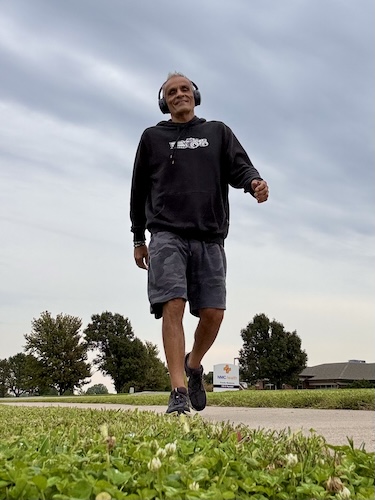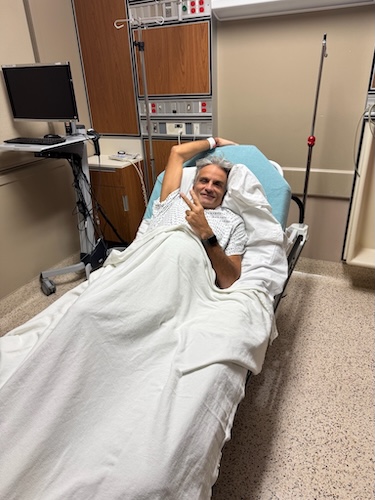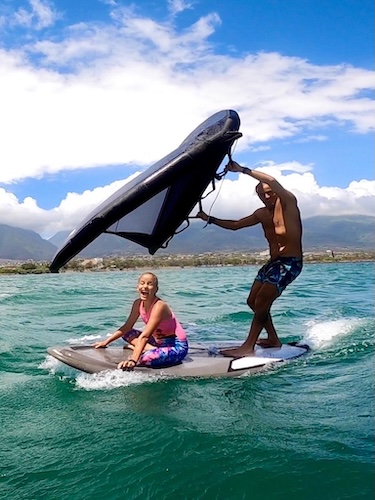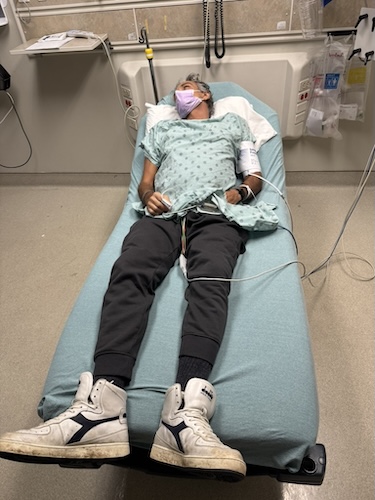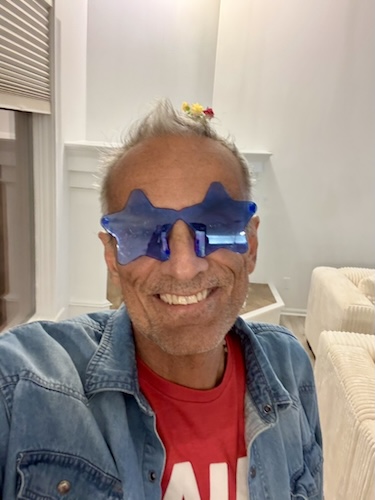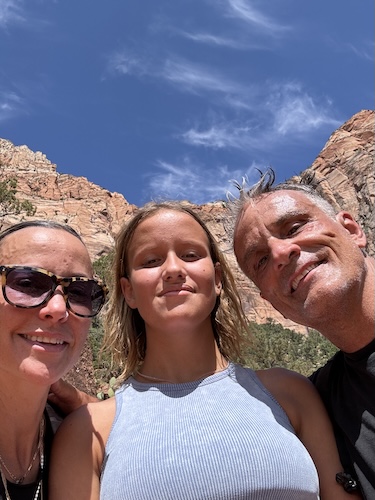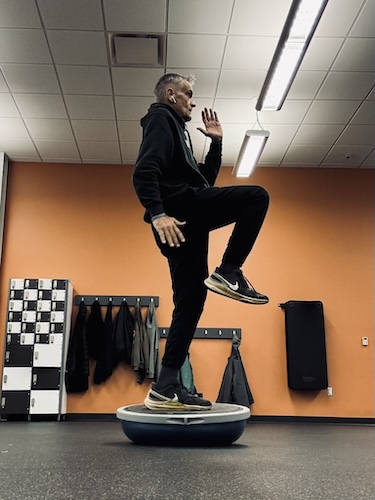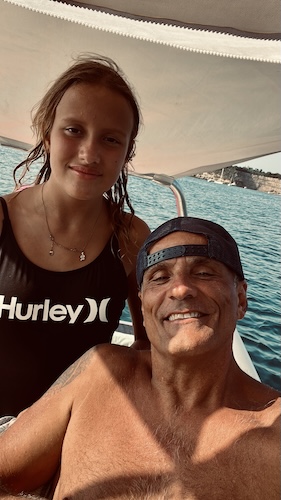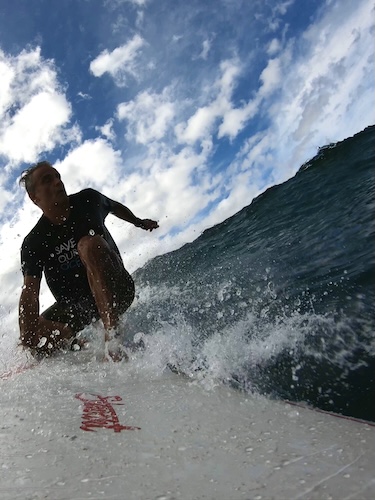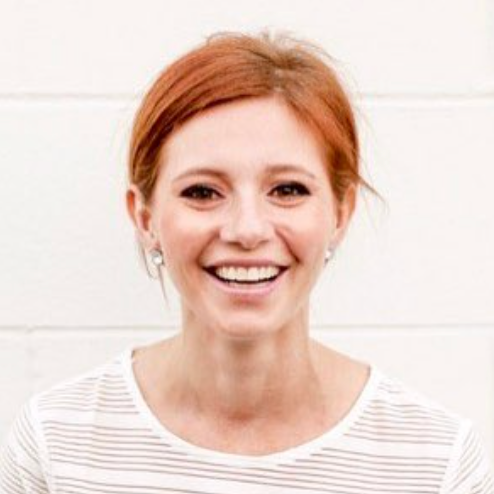Minor Pain, Major Discovery: Pio’s Stage 4 Colorectal Cancer Story
Pio’s story is a reminder of how life can shift in the blink of an eye, even for someone who’s lived his days in sync with the ocean. Originally from Italy but a longtime Hawaii waterman, Pio spent decades windsurfing, surfing, and designing gear for the waves. He felt alive and in tune with nature, until a faint twinge near his liver led to a diagnosis that would change everything: stage 4 colorectal cancer.
Interviewed by: Taylor Scheib
Edited by: Chris Sanchez
Pio first noticed a minor pain, which he rated a “2 out of 10” and brushed off. But after a routine blood test in January revealed troubling markers, scans showed spots on his liver and lungs. Hearing the words “colon cancer” and “peritoneal carcinomatosis” was like stepping into another reality. Still, Pio’s mindset immediately leaned toward action and understanding. He and his wife Gretchen reached out to doctors across continents, eventually relocating to the Midwest with their daughter Allegra, so he could access specialized care.
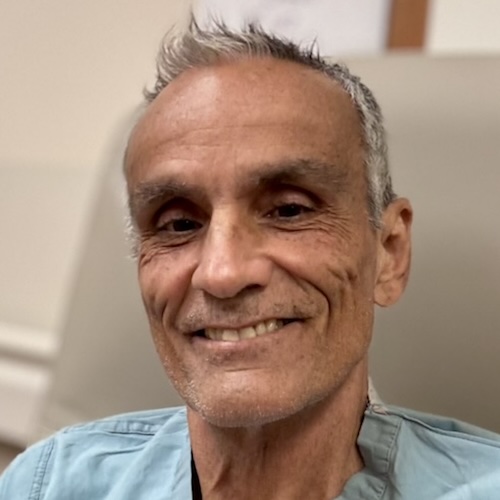
Transitioning from long days in the Hawaiian surf to hospital visits in Oklahoma City and MD Anderson was a radical adjustment for Pio and his family. But his discipline and focus never wavered. Even as he underwent long chemotherapy sessions, sometimes walking out with a pump for two extra days, he leaned on his active lifestyle, nutrition, and mental strength. He fasted on chemo days, followed a mindful diet, and kept moving, believing that his body and brain together could support the treatment.
When scans in May 2025 showed tumor growth despite months of chemotherapy, it was discouraging. But Pio learned he carried the aggressive BRAF V600E mutation, prompting a targeted therapy with inhibitors. By July 2025, he was stunned to hear that the new treatment was working, a glimpse of hope that reaffirmed his belief in taking things one day at a time.
Through it all, Pio speaks with humility, love, and gratitude for his wife’s constant strength, his daughter’s resilience, and the community support stretching from Hawaii to Europe. He encourages others facing colorectal cancer to seek multiple medical opinions, stay actively involved in their care, and trust in their own inner power. He embraces the idea that mental discipline, connection, and self-belief are just as vital as medical treatment.
Pio now looks ahead with patience and purpose. His story reminds us that even in the face of something devastating, we can find ways to reconnect with ourselves and our loved ones, to learn, and to support others walking a similar path.
Watch Pio’s video and scroll down for his interview transcript for more about:
- How minor discomfort led to a life-changing diagnosis
- Why mindset and discipline became Pio’s greatest tools
- How one family faced colorectal cancer with courage and care
- The moment a routine check-up revealed something life-altering
- From the ocean to oncology: Pio’s empowering story of hope
- Name: Pio M.
- Diagnosis:
- Colorectal Cancer and Rare Form of Extensive Peritoneal Carcinomatosis
- Staging:
- Stage 4
- Mutation:
- BRAF V600E
- Symptom:
- Minor pain in liver area
- Treatments:
- Chemotherapy
- Monoclonal antibody medicine
- EGFR inhibitor
This interview has been edited for clarity and length. This is not medical advice. Please consult with your healthcare provider to make informed treatment decisions.
The views and opinions expressed in this interview do not necessarily reflect those of The Patient Story.
- My name is Pio
- When I first noticed something was wrong
- The moment everything changed
- We left Hawaii to find the right care team
- What my treatment has looked like
- I found out that I have an aggressive mutation
- What cancer has shown me
- Adjusting to life on the mainland
- Why I feel like multiple opinions are important
- What I want people to know
My name is Pio
My name is Pio. I’m originally from Italy. I’ve lived in Hawaii for 35 years.
I’m a surfer, windsurfer, and waterman. I’ve dedicated my life to water sports. I have my own company that designs surfing and windsurfing accessories.
I was diagnosed with an adenocarcinoma in the colon that basically moved to the peritoneum. So I have peritoneal carcinomatosis and little lesions in the liver in the subcapsular region of the liver, and two small nodules in my left lung.
When I first noticed something was wrong
Two months before the diagnosis, I was training, surfing, in the water, swimming, windsurfing, and so on. I wasn’t feeling 100% for some reason, but I didn’t think it was too serious. I kept up with my surfing and all, I was healthy as far as I knew and I also tried to follow certain diets. And so I didn’t really think about it, honestly. I was like, “Whatever.”
I had this very small pain here, right on my liver. On a scale from 0 to 10, let’s say it was a 2. So I kept doing what I was doing, just working through the pain, it wasn’t a major pain and I didn’t pay attention to it.
On the 7th of January, I went to do my yearly blood test. And I asked the doctors, “Hey, since I’m here, do you guys want to check this little pain that I have?” They’re like, “Yeah, no problem.” When I went in, the doctor said, “Oh, you don’t have any long medical history. You don’t take medicines. You only have a little bit of data here. I don’t like this pain you have. I want you to do more tests.”
So I took another blood test right after, and it took some different markers. One was the D-dimer. And it basically looks for blood clots. The doctor said, “You might have a blood clot. Let’s do a chest scan, see how you feel.” I did the CT scan, came back, and I was waiting for him. And he comes in and says, “Well, the good news is you don’t have a blood clot. The bad news is I see these couple of black spots that I don’t like.” I froze, and didn’t want to say the word, and I didn’t want him to say the word either. He said,
“I’m going to have to do another scan of your pelvis.” And I went, “Is it that cancer?” And he was like, “I can’t tell you until we do the other scan.”
So I went in again, and meanwhile I called my wife and I was like, “Something happened.” We were supposed to leave three days later because she had a European tour. So I was going to visit my mom and my family. And I was going to go catch her when I could. And so we’re ready to go. And so Gretchen came and found out. She was like, “What’s happening?” It’s a shock.
The moment everything changed
I went to do the other scan, and when I came back, the doctor came in, and his face was the classic face, looking at the ground. He went, “You have colon cancer and you have a peritoneal carcinomatosis.” I understand colon cancer, but peritoneal carcinomatosis? “You have this in the subcapsular region of the liver.” So I’m like, oh my God.
From there, he told me he expedited me to Honolulu to do a colonoscopy right away because they couldn’t do a colonoscopy in Norway. So I flew to Honolulu on Friday, the first, and we came back home on the seventh, I think it was Tuesday or Wednesday. And imagine the first two days. I was like, “What do we do? It’s a very hardcore type of feeling. It’s very hard to explain. It comes from the core. I started saying, “Okay, I’m healthy, I’m doing this, I’m doing that. Why is this happening to me?”
When I was having the conversation with the doctor, he was looking at me and was like, “You don’t feel anything?” I’m like, “No, I went for a run yesterday. I was in the water all last week.” “Well, it’s kind of advanced, and I’m going to send you to Honolulu so we know exactly what it is.”
So when we came back home, it was like just a couple of days of complete shock. We didn’t know how to tell our daughter.
We left Hawaii to find the right care team
I started to make phone calls, and my first idea was to call Italy. I know doctors and friends who could tell me what to do. And as soon as I said the name “peritoneal carcinomatosis,” they were like, “Oops.” It’s a little rare, especially in men. And heart conditions. It’s extensive carcinomatosis, and we need to get this aggressively treated now. I asked if I needed to go to Italy and was told, “No, you have the best centers in the United States. Go call these people and figure things out.”
So I talked to my wife, and we waited for the hospital in Maui to tell me something. I called, but they didn’t call me back. So my wife made some phone calls, I made some phone calls, and we basically got accepted into Oklahoma City through some friends. So in eight days, I packed my bag and boom, I left.
The doctor in Oklahoma City talked to me about that and the options that I had. And she sent me straight to a PD and a PET scan. After a couple of days, she went, “These things are growing. Luckily, you don’t have it anywhere else. Your bones are fine, your brain is fine, everything is fine. But I want to start treatment with you right away.”
I left Hawaii nine months ago and haven’t yet returned. Right now, I’m based in the Midwest. And then after a couple of weeks, I got accepted into MD Anderson, which I’m very grateful for. I went there for the first time at the end of February. Then I went back in March. The doctor there also had a sad and serious expression when we spoke, and she said, “You know, you have something serious, which is stage four, obviously. And we really need to be aggressive.”
What my treatment has looked like
I would do this long session of chemo that would take about 6.5 hours, then I would go back home with a pump for two days. I had to stay in a B&B in Oklahoma City for about a month. I was doing therapies every two weeks, but I was also seeing the doctors. The doctors wanted me there in case something happened.
From there, the chemo started to work a little bit, so my anxiety started to go away. I started to feel a little better. So I was thinking, “Okay, this is working.”
I was very lucky not to have major side effects. I was following the food program already with one of my nutritionists, which is done on the day of chemo. I was fasting. I was just drinking bone broth and eating some millet or something like that, which isn’t really heavy. No sugars, and I’m a sugar addict. So this really helped me to listen to my body.
I was still going out and walking, still going to the gym, because I couldn’t stop. I was like, “I’m not going to give up right now.” And that’s the thing that’s really helped me through all my life, my mindset. It’s always been very straight and very direct. If I have to do something, I’m just going to do it with 150%.
I found out that I have an aggressive mutation
So, after the sessions, in May, I went to MD Anderson for my second scan. I was feeling better. So I was like, “Yeah, this is going to be great.” I had these expectations, but I learned my lesson.
The doctor said, “They actually grew and grew.” I said, “What do you mean? Because I felt some nodules here before in my hands, and now I don’t feel these nodules anymore.” She replied, “You know, we can’t go by what you feel with your hands. It grew a bit. And I’m a little worried the therapy didn’t work because your markers are high.” I was like, “What do you mean? But I feel better than two months ago.” And she was like, “I’m going to have to switch the therapy. I’m going to put you on an inhibitor.” As it turns out, I also had a BRAF V600E gene mutation, which is basically very aggressive.
So the doctor put me on an inhibitor for the gene. And then another drug, an EGFR inhibitor, which I took on a one-and-a-half-hour infusion every week. I was like, “Is this going to work?” And she’s like, “I don’t know. I really hope that this is going to work.’
My wife and I were looking at each other. “Okay, let’s dive into this other adventure.” And that’s where my mindset helped me so much, which is like, “I’m going to take this day by day.”
And then in July, I went and had another scan, and it found that everything had changed radically. The therapy was working. And the doctor went, “How? What happened?” I was like, “Okay, what do we do? Surgery?” She went, “Chill out. Let’s talk it over. Maybe at the end of the year. We have to do this one step at a time.”
What cancer has shown me
Whatever the end of this experience will be, I’m learning. I’m reconnecting with a lot of other people. I’m connecting more with my family, with my people at work. I’ve received huge support from the entire community, from Hawaii, from Europe, from everywhere. And I didn’t expect it. I mean, I did expect support, but I didn’t know how big it was going to be. And that was huge.
I’ve asked myself so many questions and made so many statements. I’m so happy. I’m so good. I can swim for hours. I can’t do this. I can. I feel like I’m a superman. No, I’m not. I’m not healthy. I was fit. I was asking these questions, and I don’t know why. I don’t know why this happened to me. The reality is, like, I didn’t give myself an explanation. I just got to the point. First of all, I’m like, well, better me than my daughter. Better me than my wife. Even if my wife is an incredibly strong being, without her, there’s no way I would go through this. And thank you, Gretchen. She’s a powerhouse.
I’m like, okay, it’s a plan. It was written, and I’m just going to have to accept it. And I’m going to make treasure from it and learn from it.
Adjusting to life on the mainland
Allegra, my daughter, was like, “What am I doing here?” Good question. It is a radical move. Two places are totally different. But obviously, I needed to find care. And people who actually care about what I was going through. And the main thing is, for the first couple of months, I was completely confused.
And Allegra went, “Okay, I want to go to school.” So she ended up in the school that Gretchen attended. So she had to do the last three months of middle school. Imagine this little girl who basically just turned 14, who spent all her life in jungle school, barefoot, in tiny classes of eight kids of different ages — has to put on shoes and jeans and attend a 300- or 400-student school. And she’s like, “What am I doing here?” We’re going through a hard moment. But our concern is our daughter. So talking to her, and obviously, you know, he had this at the beginning of these things, where you feel that your daughter is not upset with you, but it’s your fault. “I want to be with my friends, and I’m here because you’re doing this. What’s happening?”
So for us, for me, being away from the ocean, it’s tough. People think, “Oh, you live in Hawaii. You’re on the beach the whole day.” No, we do play hard, but we also work hard. The beauty of Maui, or of living in a place like Maui, is that you can quickly take a break to enjoy some waves or wind for just half an hour in the middle of the workday and then get back to your office and work afterward. So, it’s something that I don’t have anymore.
Patience is one thing that I’m trying to teach my daughter, and patience is the thing that, you know, you increase every day. And I have to be thankful because Hawaii is going to still be there. The ocean will still be there.
Why I feel like multiple opinions are important
I think getting multiple opinions is a must. Honestly, you don’t want to just listen to one person; it has nothing to do with whether that person is good or not. That’s not what I’m saying. But you also need to learn. Luckily, I was already very in tune with my body. I already knew a lot of things about how my body works.
So in my conversation with my first doctor, I was documenting myself. Trying to understand what this clinical carcinomatosis is. And then I started to learn and understand so that I could have a conversation. The reality is that I believe different people communicate with each other. There are different care teams, which is amazing. There are different apps. They can communicate and share. And all of them have a different way to talk to you.
You learn different things. And I go there with my phone and ask 20,000 questions. I want to learn and confront myself, and learn and communicate. I believe it’s a must.
What I want people to know
First of all, you’re special. This doesn’t happen to everybody. So it’s both a good and a bad thing to have this. There’s a lot to learn. And the main thing is to take it head on, to not get depressed, to not think that you’re not going to make it. I understand that at the beginning, that’s what you may think. I felt the same.
But then, when you get into the groove, just be focused on yourself and be convinced. We’re very powerful beings. And my doctor at MD Anderson told me that there is so much I can do. And I feel like we do 50%. The other 50% comes from you. You have to believe you’re at the cellular level. Your body, your brain. And when you believe, you feel better, you create oxytocin. You create all these chemical things in your body. They make you feel better. And you need to look for good support, a good medical team. But you need to believe that you’re going to get through this. And you’re going to learn from it.
Because when you go through this, your brain changes a bit. You have this change, this little modification in your system when you know you can help. Okay, now it’s my turn to help.

Inspired by Pio's story?
Share your story, too!
More Colorectal Cancer Stories
Lindsay D., Colon Cancer, Stage 4
Symptoms: Lump in pelvic area, funny-smelling food, weight loss
Treatment: Chemotherapy, colectomy (surgery)
